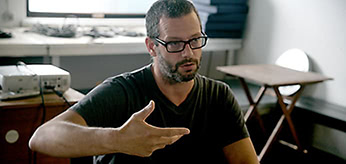Case Study: João Fiadeiro
Our first case study on choreographer João Fiadeiro was carried out between October 2014 and March 2016. His Composition in Real Time method was the main point of interest, which Fiadeiro has developed throughout the past twenty years. Since Fiadeiro’s professional activities extend across the fields of choreography, performance, pedagogy and research, the BlackBox team designed four studies to investigate different aspects of his work.
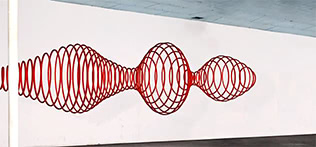
João Fiadeiro started to develop the CTR method in 1995 based on the necessity to design a compositional system that would allow him to share his personal artistic sensibility with his collaborators in the creative processes and performances. Following this initial phase the CTR method was further elaborated as an instrument to explore the dramaturgic dimension in dance in collaboration with other artists and researchers. More
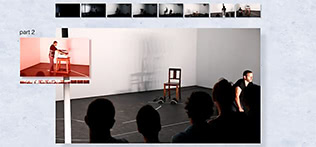
Fiadeiro selected three solo works from different decades for the SOLOS | ENACTMENTS performance series, reworked two pieces and presented the third in the hybrid format of a lecture-performance in order to share essential insights from his ‘sabbatical’. For us as researchers interested in the initial stages of Fiadeiro’s creative process it was a rare opportunity and great privilege to witness and accompany this beginning of a new choreographic cycle More
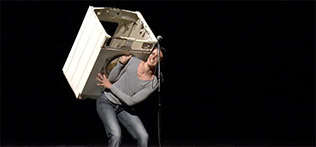
We have accompanied Fiadeiro’s new group piece “What to do with what remains”, an exhilarating dance piece that could be described as a contemporary novel published onstage in real-time. Five dancers exert themselves running in the outskirts of the theatre for the duration of the entire piece. In regular intervals the dancers enter the stage individually, stop in front of a microphone stand, and convey their experience while gasping for breath. More
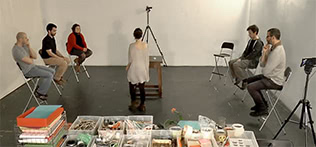
The BlackBox Floor Study aims at looking at social interaction in a creative context, that of a contemporary dance improvisation, and in particular, the management of turn-taking in performing arts. Turn-taking is that process common in everyday interactions like conversations, where people decide who to interact or speak next based on other people's behavior. These cues include, pauses and intonation at the end of a spoken phrase, subtle gestures and other body movements, and eye gaze. More
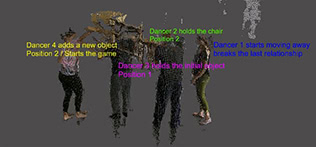
Annotated videos have been used in the context of dance performance not only as a way to record and share compositions and knowledge between different choreographers, but also as a powerful learning tool. Restraining the viewpoint of the user to the recorded point of view can be an obstacle in several scenarios. More
